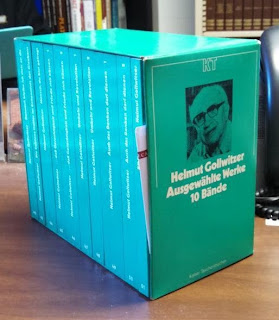Comments Brought to Light: David Congdon on Bultmann, Barth, Heidegger, Scripture, Tradition, and Sache
Collin Cornell recently provided a guest post here at DET entitled, “Helmut Gollwitzer and John Webster on Scripture, or, the problem of *ethical* biblical criticism.” It is a very thoughtful post, and it has generated a number of comments. Twenty-seven, to be exact. That conversation is very interesting and I encourage you to go read it thus far. But it was recently the scene of an extensive set of comments by David Congdon in response to Phil Sumpter and addressing a number of interesting questions that depart somewhat from the subject of Helmut Gollwitzer and John Webster on the doctrine of scripture (although they grow organically from the starting point). In any case, I wanted to highlight these comments because I thought that they were particularly helpful articulations, and I wanted to provide a separate comment thread so that discussion on these topics can continue in their own dedicated location. I have only provided Congdon’s comments here, and I encourage you to go read t...
